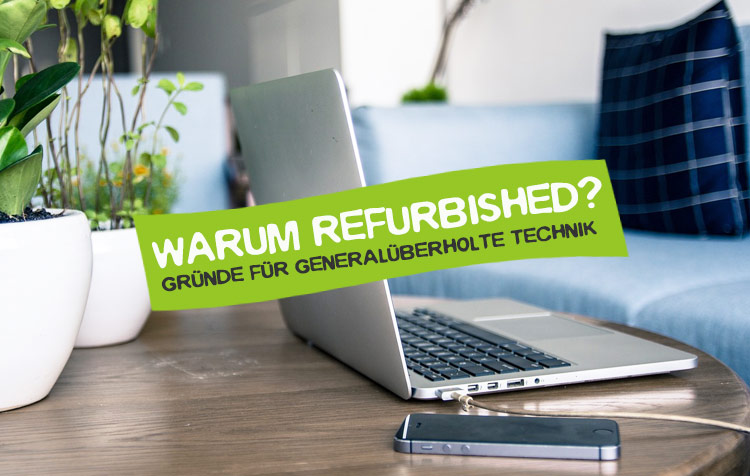Do you want to know how a zero waste restaurant and conscious waste avoidance in the catering industry works? Then you've come to the right place!
Whether it's leftover food, coffee grounds, to-go packaging or disposable crockery and cutlery, a restaurant produces an incredible amount of waste. But most of it is completely avoidable - or the associated natural resources at least recyclable.
More and more restaurateurs and guests are therefore opting for the Circular economy and sustainable practices in restaurants, cafés, commercial kitchens, canteens and other catering establishments. So it's no wonder that the waste-avoiding concept of a zero waste restaurant is becoming increasingly popular.
In this article, I would like to introduce you to the benefits, positive examples and, above all, the most important tips that can be used to easily avoid a lot of waste in restaurants. Use them to suggest improvements to restaurant owners, for example. Or, ideally, to manage your own restaurant in a more environmentally friendly, sustainable and efficient way. Let's go!
Advantages: Why should all restaurants consciously avoid waste?
In order for the necessary motivation I have put together the most important reasons why restaurants should be as waste-free as possible:
- EnvironmentProducing less waste means conserving the planet's resources. Among other things, zero waste restaurants slow down climate change, free up landfill space and reduce waste. Plastic waste in the environment. In this way, they also protect the lives of countless wild animals.
- Cost savingsBy minimizing waste, restaurants can use their resources more efficiently and reduce operating costs. For example, less waste means lower disposal costs - and often also lower purchasing costs.
- Customer satisfaction: More and more consumers include sustainable practices in their purchasing decisions. Restaurants that actively strive to reduce waste therefore improve their image in an honest way - and attract new guests more quickly, who are also happy to return.
- Future opportunitiesZero waste can be a unique selling point that positions restaurants as innovative pioneers in their industry. Zero waste restaurants are also sustainable because they are always prepared for possible new environmental laws and regulations to reduce waste.
- Sensitization: Of course, running a restaurant also comes with social responsibility. By avoiding waste, restaurateurs also raise the awareness of employees and guests for environmentally conscious behavior - in our current Disposable society.
Examples: Which restaurants and cafés are already practicing waste avoidance?
Fortunately, there are already one or two restaurants in which Zero waste exemplified in an impressive way without sacrificing first-class culinary experiences.
The following companies are considered shining examples of waste avoidance in the catering trade and serve as a valuable source of inspiration for other restaurants:
- FREA (in Berlin): FREA is Germany's first vegan zero waste restaurant. The team around David and Jasmin produces no food wasteInstead, they use a composting machine to turn all compostable waste into nutrient-rich soil that is made available to local farmers. Their motto is: full taste, zero waste.
- Ravintola Nolla (in Helsinki): The "Ravintola Nolla" (translated "Restaurant Zero") also has a composting machine and uses absolutely no disposable plastic. All resources are recyclable. To avoid waste, the restaurant also works directly with local suppliers - and food is also saved.
- Silo (in London): As the first zero waste restaurant in the UK, "Silo", which was founded in 2014 by Michelin-starred chef Douglas McMaster, avoids an incredible amount of waste with recycled furniture and seasonal food (most of which is home-grown).
10 tips: What do zero waste restaurants actually do to avoid waste?

Now you know why your restaurant should avoid waste - and which restaurateurs you can take inspiration from. A first important basis for successful implementation is, of course, Waste-generating areas in day-to-day operationsthe status quo, so to speak. Many individual measures can then ultimately be derived from this.
At this point Here are the basic tips and ideas to significantly minimize a restaurant's waste in the shortest possible time.
1. offer recycled, recyclable or reusable packaging for take-aways
According to Greenpeace are generated in Germany by to-go meals and drinks alone around 770 tons of waste every day. Waste from plastic packaging is the main problem. Restaurants can avoid this plastic waste, for example, by recycled paper boxes or Paper cup printing or deliver their food directly in reusable deposit containers.
The latter should also be aimed for because guests since January 2023 the legal right enjoy, eat and drink to take away in reusable containers to receive.
2. introduce discounts and other incentives for waste-preventing behavior
As a restaurant owner, you can also offer your customers financial benefits if they bring their own containers for take-away or leftovers. This can be, for example, a Price reduction or also a free coffee be on the house.
Ultimately, businesses can not only contribute to waste avoidance, but also reduce Strengthen customer loyalty.
3. stop food waste in the kitchen
Whether it's spoiled food, mistakes in preparation or leftovers on plates - food waste is one of the most biggest ecological challenges facing the catering industry. It is so fatal because natural resources were also used to produce the products (and then ultimately for nothing at all).
But what can restaurants actually do? Here are some Tips and strategies for minimizing food wastethat companies can implement directly:
- Efficient inventory management and sensible storage (e.g. order perishable ingredients in small quantities and dry ingredients in large quantities)
- Offer of different portion sizes (e.g. smaller portions for children)
- Encourage guests to take away leftovers (e.g. through price advantages)
- Cooperation with food rescue organizations (e.g. Food Sharing)
- Staff training on waste prevention (e.g. through workshops)
4. use reusable crockery, cutlery and washable napkins
This is not only caused by food packaging, but also, for example, by the utensils provided, such as plastic crockery and cutlery, disposable sauce boxes or inconspicuous paper napkins avoidable waste.
In the restaurant itself, you should of course use washable reusable alternatives, such as cutlery made from Stainless steel and napkins made from linen. At the ToGo store you can Compostable wooden cutlery or tell your customers that for the sake of the environment their own cutlery and use their own napkins.
Tip: I have also written a separate article about the Plastic-free kitchen if possible written. So feel free to pick up a few tips there too!
5. source local and seasonal food and grow it yourself
By "waste" I also mean the waste of resources as such. And that is precisely why zero waste restaurants also rely on regional and seasonal Products:
- Regionalbecause the Short transportation routes and low energy consumption are.
- Seasonalbecause the Low water consumption and inexpensive food are.
Last but not least, local small farmers - and the entire region - also benefit from the preference for regional and seasonal food on the menu.
Tip: One measure that is extremely highly regarded by guests is to grow some of the food themselves in the restaurant garden!
6. minimize food waste and compost organic waste
Restaurant owners can use simple tricks to reduce food waste in the kitchen or from leftovers from guests' meals. For example, by all parts of the plants used are utilized as far as possible can be used. Carrot greens, for example, can be used to make an extremely tasty pesto! Offering smaller portions also helps immensely!
As a rule, however, food waste cannot be completely avoided. The pioneers among zero waste restaurants therefore rely on on-site food recycling. With the help of a Composting machine into which the kitchen waste is poured fertile soil can be produced that can be used, for example, for growing food and fresh ingredients from the home garden.
Tip: You can find even more inspiration in the article with tips about the Sensible utilization of food leftovers.
7. work with food rescue organizations and partner companies with a similar philosophy
Both when purchasing and before possible disposal kannst du mit deinem Restaurant besonders viele Lebensmittelabfälle vermeiden. Ganz einfach, indem du mit Menschen und Betrieben arbeitest, die ähnlich „ticken“. 🙂
So look for environmentally conscious supplierswho share your zero waste philosophy and are willing, for example, to deliver their goods to you plastic-free. In the same way, you can also work with companies that save edible food elsewhere. They then make it available to you for direct processing.
There are also often leftovers in the restaurant kitchen. You can, for example Sell at a reasonable price (e.g. at ToGoodToGo), to the local food bank or by committed FoodSharing members be rescued. That is social responsibility in action!
8. use water- and energy-saving appliances
It goes without saying that all appliances used in a waste-avoiding and resource-conserving kitchen or restaurant should be as water and energy efficient as possible. From the Refrigeratorabout the Induction stove, Filter systems, the Dishwasher and the Taps, up to the Ventilation system.
Corresponding Investments also pay off financially in the long termas they reduce operating costs for energy and water.
Good to know: The best Tips for saving water and Ideas for lower energy consumption I will introduce you to each of them again in the linked articles.
9. choose unique furnishings and decorations made from old materials
A zero waste restaurant should, of course, aim to conserve resources in its furnishings as well. For example Reclaimed tables made from old oak planks, shelves made from wine crates, a bar made from reclaimed wooden beams or Seat cushions made from recycled fabrics The unique charm of a waste-avoiding restaurant rounds off the entire concept.
10. sensitize people to the problem and waste avoidance

As a restaurant owner, you enjoy this great opportunity, Attention for the problem of (plastic) waste and its creative solutions in the food service industry.
Find out more, for example, on Menu cards, cooking aprons and hoodies, on posters, displays or on your website about what you actually do. In a way, you are contributing to the Environmental Education but also benefit from the fact that customers feel connected to your commitment.
Zero waste restaurant? Easier than you thought!
With the help of these waste-avoiding tips, you as a restaurateur, but of course also as a restaurant guest, can make a valuable contribution to environmentally friendly action in our society.
However, please also be aware that zero waste is not just a question of environmental responsibility, but also a great opportunity for the long-term success of a restaurant is.
"Reason starts in the kitchen."
Friedrich Wilhelm Nietzsche (more at Food quotes)
I hope this article has inspired you to rethink the restaurant industry. Do you have any questions, suggestions or other tips for making restaurants as waste-free as possible? Then I look forward to your comment.
Stay clean,

PS: The primary aim here was to produce no or at least less waste in the restaurant. With which Tips for zero waste in everyday life I will therefore be happy to explain how you can implement them separately in the linked blog article.








